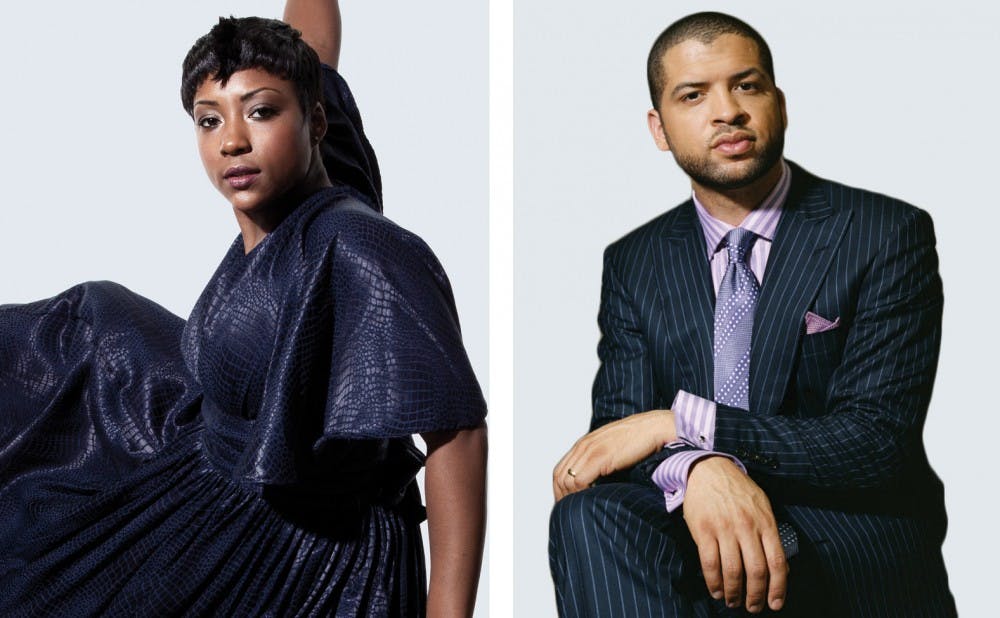This Friday, one of today’s foremost jazz musicians and choreographers will team up for a premiere performance of dance and music.
World-renowned musician Jason Moran, a MacArthur Fellow and GRAMMY award nominee, is an acclaimed pianist who most recently wrote the score for the film Selma. In 1999, he formed the band, Bandwagon, a jazz trio with drummer Nasheet Waits and bass player Tarus Mateen—a band which he dreamed up when still in college. Since the band’s inception, Moran and the Bandwagon have become well-recognized and well-regarded in the jazz world.
“Jason has for the last 10 or 15 years been one of the leading jazz musicians in the world,” Aaron Greenwald, Executive Director of Duke Performances, said.
Both Moran and his collaborator, Ronald K. Brown, began their careers young. Brown knew since childhood that he wanted to grow up to be a dancer, and he even founded his own dance company, Evidence, at age 19.
“Ron K. Brown is really a kind of visionary choreographer who for the last 25 years has been choreographing work of leading dance companies in the world,” Greenwald said.
Collaborating with Brown, who currently works with Alvin Ailey American Dance Theatre, the program will begin with Brown’s “Grace,” which not only involves wonderful dancing but also has a “palpable, spiritual quality,” as Greenwald describes it, and develops as an abstract narrative that follows a group of people on a journey. Then, Moran and his band will play live music this Friday for the world debut of Brown’s “The Subtle One,” which will conclude the program.
The New Yorker described “Grace” as “the most impressive West African-based dancing to be seen in New York today,” and one that is not solely about religion nor Africa, but rather tells ambiguous stories infused with the both elements.
Greenwald elaborated, “Ron uses a very interesting African American movement vocabulary that is drawn as much from ritual dance in Africa as well as social dance in the United States, as well as being filtered through the history of American modern dance.”
In Brown’s words, he describes the essence of his dance choreography as “storytelling.”
However, his storytelling is far from being a straightforward narrative. Brown’s association with modern dance on the outset may seem intimidating. After all, the public perception of modern art forms is largely that they are abstract and impossible to understand—as we have seen with many famous modern artists who have repeatedly raised debates surrounding the question, “What is art, anyway?”—However, despite the modern, abstract quality of Brown’s choreography, they are incredibly welcoming to a willing audience.
“The movement [in the dances] is accessible. It feels like something that is deeply rooted,” Greenwald said. “Jason is also really clearly a modern artist, so he believes in abstraction. But, again, it’s not an abstraction that leaves you scratching your head—it’s an abstraction that I find inviting. It’s abstract because there’s an opportunity for the audience to interpret it in different ways, or to interpret it at all.”
Tomorrow, the Duke and Durham community has the opportunity to discover and interpret Brown and Moran’s collaborative performance, one that is not only full of energy, but also of world-class caliber.
The performance will be Fri., Feb. 20 and Saturday Feb. 21 at 8 p.m. Tickets can be purchased online at Duke Performances website or at the box office.
Get The Chronicle straight to your inbox
Sign up for our weekly newsletter. Cancel at any time.

